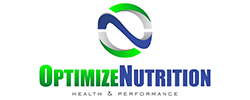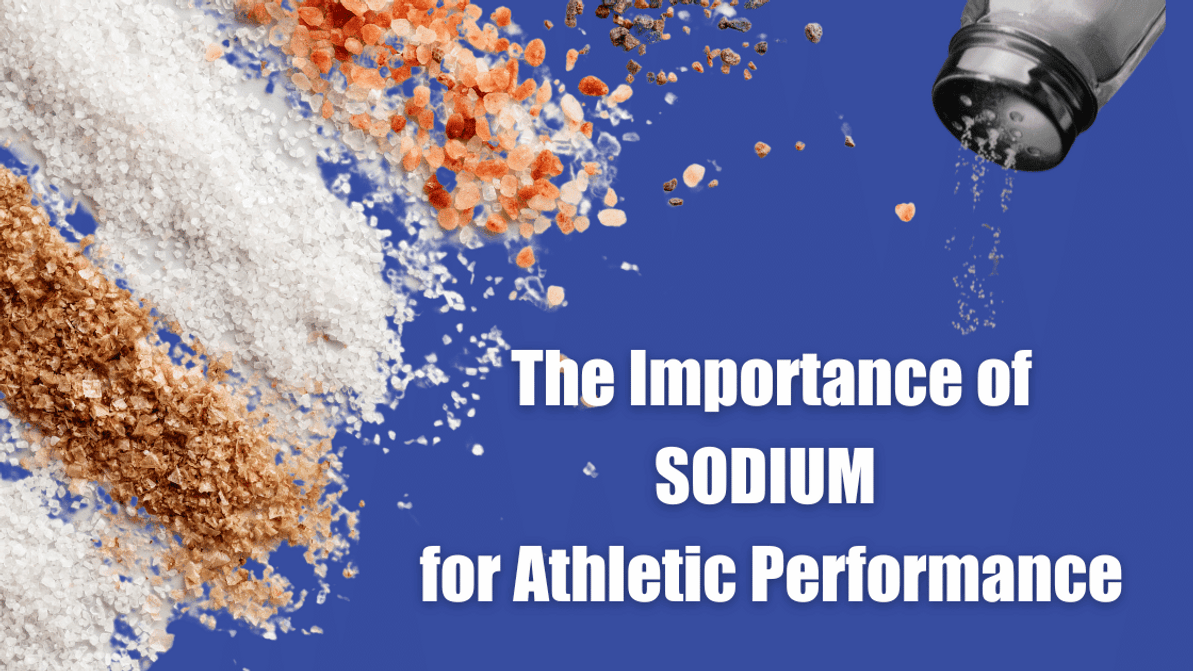Importance of Sodium for Athletic Performance
In the realm of athletic performance, discussions often revolve around macronutrients, hydration, and training regimes. Yet, one vital element frequently overlooked is sodium. Despite its often-negative reputation due to concerns about excessive intake, sodium plays a crucial role in supporting athletic endeavors. In this blog, we'll delve into the benefits of sodium for athletic performance, examine the differences between refined salt and alternatives such as Celtic, Himalayan, and sea salt, and explore the risks of sodium deficiency - which is rarely discussed, particularly for those eating clean, whole food-based diets.
The Role of Sodium in Athletic Performance
Sodium, an essential electrolyte, is vital for maintaining fluid balance, nerve function, and muscle contractions. During exercise, especially prolonged or intense sessions, the body loses significant amounts of sodium through sweat. Failure to replenish these losses can lead to dehydration, muscle cramps, fatigue, and impaired performance. It's important to note that this does not exclusively apply to high level athletes, and anyone living an active lifestyle should pay attention to their intake.
- Electrolyte Balance: Sodium works in concert with other electrolytes like potassium, chloride, and magnesium to regulate fluid balance within cells. This balance is crucial for optimal muscle function and nerve transmission, both essential for athletic performance.
- Hydration: Sodium facilitates fluid retention by maintaining the body's water balance. Adequate sodium intake helps prevent dehydration, particularly during prolonged physical activity or in hot climates where sweating is profuse.
- Muscle Function: Sodium plays a pivotal role in muscle contractions. Insufficient sodium levels can impair muscle function, leading to weakness, cramping, and decreased athletic performance.
Refined Salt vs. Alternative Salts
When discussing sodium intake, the type of salt consumed matters. Refined salt, commonly found in processed foods, undergoes extensive processing that strips away minerals and additives are often included. On the other hand, alternatives like Celtic, Himalayan, and Sea Salt are less processed and retain more minerals, providing additional health benefits.
- Refined Salt: Often criticized for its high sodium content and lack of nutritional value, refined salt is heavily processed, containing additives like anti-caking agents and iodine. While it effectively replenishes sodium levels, it lacks the additional minerals found in unrefined salts.
- Celtic Salt: Harvested from the coast of France, Celtic salt is hand-harvested and air-dried, preserving its natural mineral content. Rich in trace minerals like magnesium, potassium, and calcium, Celtic salt offers more than just sodium replenishment, aiding in overall electrolyte balance.
- Himalayan Salt: Mined from ancient salt deposits in the Himalayan mountains, Himalayan salt is revered for its pink hue, indicative of its mineral richness. Containing over 80 minerals and trace elements, including iron, zinc, and manganese, Himalayan salt provides essential nutrients alongside sodium, supporting athletic performance and overall health.
- Sea Salt: Produced through the evaporation of seawater, sea salt retains minerals present in the ocean. While its mineral composition varies depending on the source, sea salt typically contains trace amounts of magnesium, calcium, and potassium, contributing to its nutritional value beyond sodium content.
Risks of Sodium Deficiency in Clean, Whole Food-Based Diets
While a clean, whole food-based diet offers numerous health benefits, because highly processed foods are not being consumed it may inadvertently lead to sodium deficiency because especially for active individuals with high sweat rates.
- Limited Processed Foods: Clean eating often involves minimizing processed foods, which are significant sources of dietary sodium. While this approach promotes overall health, it may not provide sufficient sodium for athletes, particularly those engaged in strenuous exercise.
- Increased Sodium Loss: Athletes engaging in prolonged or intense physical activity lose significant amounts of sodium through sweat. Without adequate replenishment, sodium levels can drop dangerously low, leading to dehydration, muscle cramps, and impaired performance.
- Individual Variability: Athletes have varying sweat rates and sodium needs. Factors such as climate, exercise intensity, and genetics influence sodium loss rates, highlighting the importance of individualized hydration strategies.
In conclusion, sodium is a critical component of athletic performance, supporting hydration, electrolyte balance, and muscle function. While refined salt serves as a convenient source of sodium, alternatives like Celtic, Himalayan, and sea salt offer additional minerals and health benefits. However, people who are following clean, whole food-based diets must be vigilant to ensure adequate sodium intake to prevent deficiencies and optimize performance. By understanding the role of sodium and making informed dietary choices, athletes can unlock their full potential and achieve peak performance in their athletic pursuits.
Recent Posts
-
Beat the Winter Blues: A Nutritionist’s Guide to Managing Seasonal Affective Disorder Naturally
As the days get shorter and temperatures drop, many people notice changes in mood, energy, sleep, an …Dec 12, 2025 -
Back to School: Sharpen Focus, Energize Learning
As the school season kicks off, it’s the perfect time to set students up for success—not just with s …Sep 02, 2025 -
Is Apple Cider Vinegar Really Good for You?
Exploring the Benefits of ACV (Featuring Filsingers Organic Apple Cider Vinegar & Suku Vitamins Appl …Jul 18, 2025




